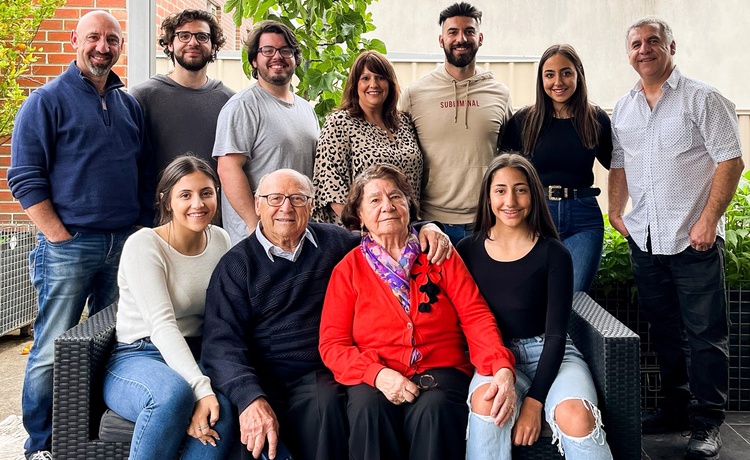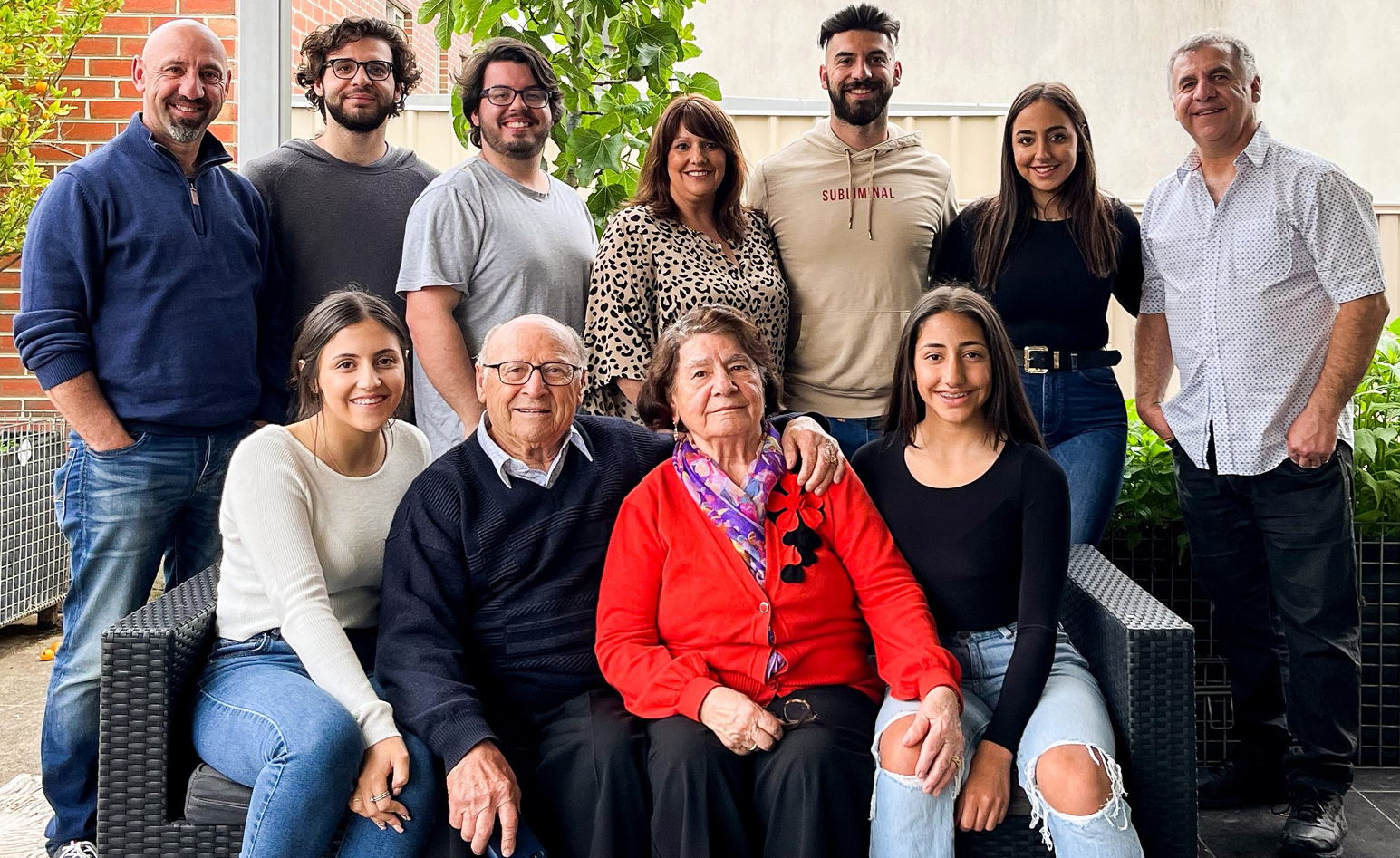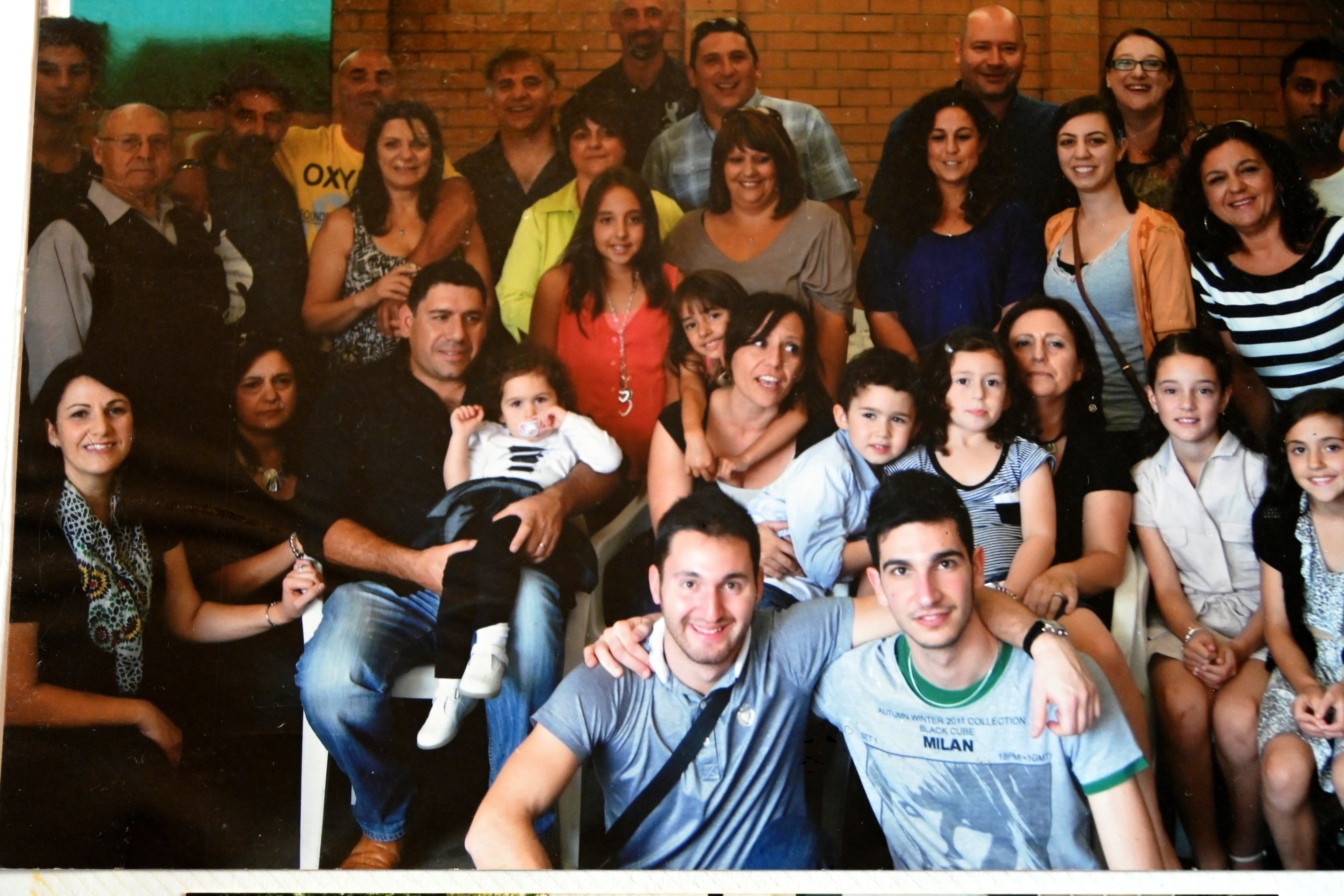There are many dates that overlap in Alberto’s mind, but his memories are still clear.
The 87-year-old, who now lives in the Melbourne suburb of Reservoir, tells of his daring Australian adventures, which occurred over 65 years ago, when he was just 21-years old and reminiscent of a young Italian Indiana Jones.
For six years, Alberto has been the president of the Pensioner’s Club within the Casa d’Abruzzo Club in Epping, which is considered the largest of its kind in Australia, with 623 members.
Alberto was born on June 17, 1934, after his brother Nicola and his sisters Maria, Irene and Aurora.
He was the youngest child of Raffaele and Lucia Verna, who were landowners in Nocciano, a rural village tucked away in the steep countryside of Abruzzo, a few kilometres from Pescara.
The Verna family has quite a history in the area and can date their origins back to Nicola Verna, Alberto’s great-grandfather, who was born in 1738 and lived his entire life on the land, growing wheat, grains, all sorts of fruit, and grapes for wine.
In 1939, the vast countryside coupled with the advent of World War II, made it difficult to find a suitable place for a schoolroom.
With the help of the mayor, the local primary teacher petitioned Alberto’s father to let them use the large room on the upper floor of his house as a schoolroom for children aged five and over.
Alberto finished primary school when he was 10 years old and went on to study at the nearby Franciscan convent for the next six years.
Even as a child, he demonstrated remarkable initiative.
“When I was 16 years old, I discovered how to use my time effectively,” he says.
“In winter, I’d train with a local carpenter, and during the harvest months, I learned how to drive a tractor in order to work for the neighbouring farmers so I could earn something for myself.
“After all, local families would always say: ‘Impara l’arte e mettila da parte!’ (Learn a trade and save it for a rainy day!).”
The popular saying turned out to be true for Alberto, as his carpentry training proved useful in the years to come.
In 1956, when he was 21 years old, Alberto submitted two applications for emigration: one for Venezuela and one for Australia.
The first response he received was from Australia’s Department of Immigration.
Alberto was told that he would be accepted as a sponsored worker, but that he would have to reimburse the government for his travel expenses, once he found a job and managed to save the money.
 Alberto Verna at 16 years old, driving a tractor in the fields of Nocciano
Alberto Verna at 16 years old, driving a tractor in the fields of Nocciano
Alberto impulsively decided to move to Australia, immediately beginning preparations to leave his family and “secret girlfriend”, Elvira Speziale, who was 19 years old.
On January 6, 1956, he left Italy on board the Surriento, which was a part of the Lauro fleet.
It was at the height of the country’s emigration wave, and there were many proxy brides on board.
This phenomenon was captured in the well-known film Bello, onesto, emigrato in Australia sposerebbe compaesana illibata, starring Alberto Sordi and Claudia Cardinale.
The Surriento was later defined as the “ship of brides”.
Given the many challenges and problems Alberto has overcome in his life, there is no doubt he would have created an equally fulfilling life in Italy.
However, at 87 years of age, living in his large, modern house with an abundant vegetable garden, he feels grateful that he chose to move to Australia, alongside his wife and surrounded by his children.
“This is my palace and my little piece of paradise that I’ve created with my wife Elvira, and I feel fulfilled and happy,” he says.
When the Surriento was near Malta, the ship’s captain received news that the Suez Canal had been suddenly closed.
The Surriento had to change its course to Gibraltar, circumnavigating Africa, and arrived in Sydney on February 14.
Alberto wasted no time when he arrived in Sydney, and even though he didn’t know anyone, he found a job at a local carpentry shop.
His meagre wages of £12 a week were unsatisfactory.
A few weeks later, he met a Scottish traveller in an Italian restaurant that he frequented.
The tourist had come from Moree, a remote rural town in north-eastern New South Wales, 600 miles from Sydney.
 Alberto Verna in 1960, working as a sugar cane cutter, in Ingham, northern Queensland
Alberto Verna in 1960, working as a sugar cane cutter, in Ingham, northern Queensland
The traveller asked Alberto where he came from, if he liked Australia, and if he enjoyed his job – to which Alberto sharply replied “no”, because of his low wages.
“The Scotsman suggested that if I was looking for better pay I should consider going to work on the cattle stations, where thousands of cows, hundreds of thousands of sheep and hundreds of horses roamed, as they needed workers to install barbed wire fences all around the properties,” Alberto says.
“In other words, these were immense properties the size of a large city, or even as big as the whole of Tasmania.”
The courageous 21-year-old did not think twice about the decision, saying to his newfound friend: “I’m not afraid of hard work – tomorrow, when you leave for Moree, I’ll come too.”
Reckless and daring, Alberto could never have imagined how difficult that kind of work could actually be.
A few weeks after his arrival in Moree, Alberto was able to apply for a heavy vehicle licence, learning about the necessary equipment required for the job, such as the drills needed to dig deep holes in the uncultivated land.
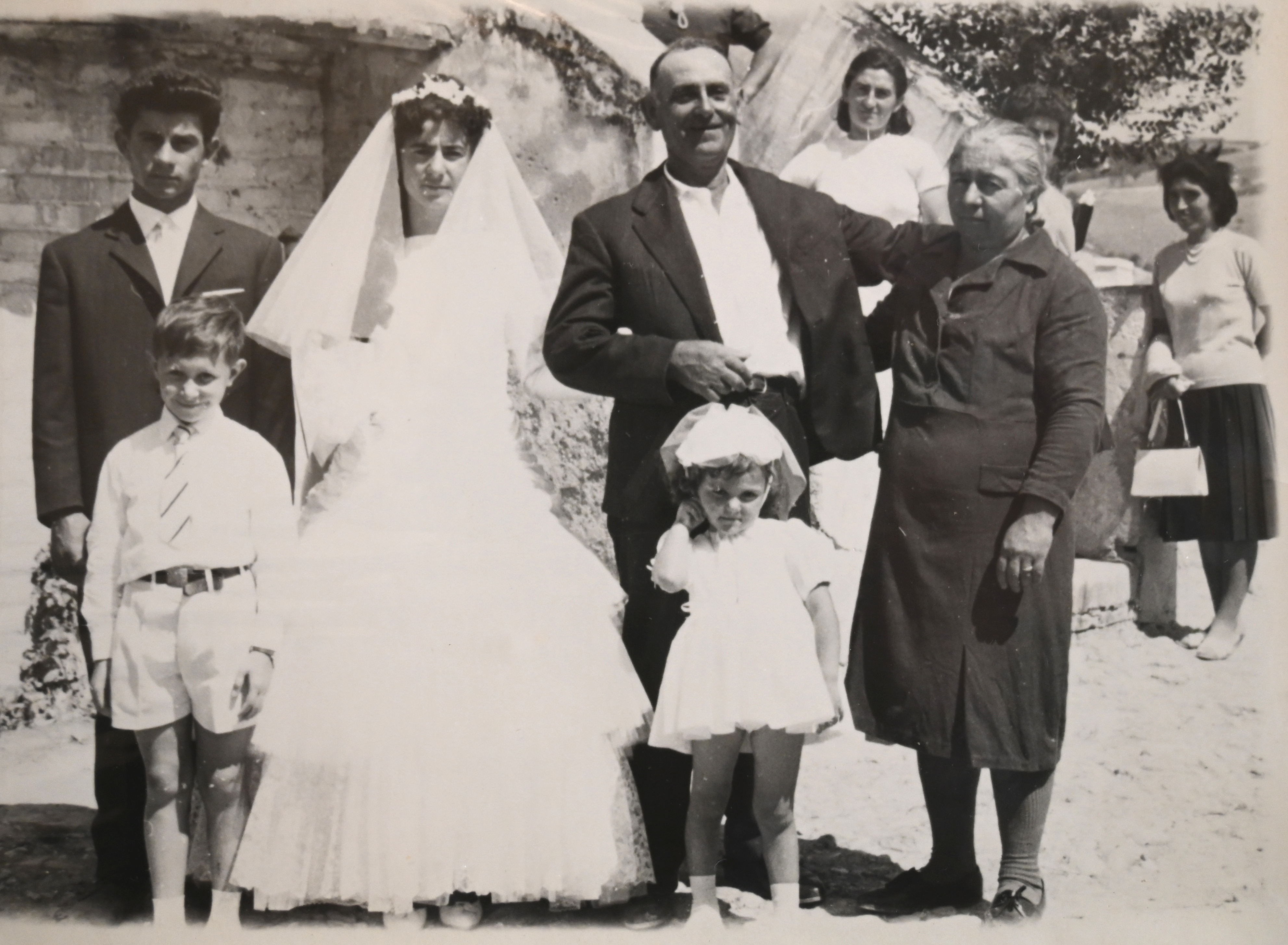
“I’d to decide soon: either to go back to a big city and find a job in a factory or invest in the future, with a new job,” Alberto says.
“I decided to spend everything I owned, which was over £2250.
“I wanted to start a new life by immediately getting to work, and promoting my first venture, Verna Fencing Contractors, by personally contacting local settlers looking for work.
“On April 25, in Quirindi, a large country town near Moree, I signed my first employment contract.
“I’d built a two-mile long fence, taking in £180 for every mile, which amounted to four days’ work for every mile.
“I made £360 on my first job, and I then began a three-year process of wandering the length and breadth of all the small and large cities of the arid rural areas throughout the vast hinterland of north-western New South Wales, through Mount Isa, Bourke, Narrabri, Lightning Ridge, Carinda, Pilliga, Inverell, Mungindi, and also Queensland, to Goondiwindi, Roma, Chinchilla, then up to Katherine, Mataranga and Kununurra, in the Northern Territory.
“For a long time, I had to move constantly and live under a tent with minimal provisions.
“I only had Keroomooloo, a 54-year-old local Aboriginal man, who helped me build poles and fences for all those hundreds of miles.
“We were always tired and hungry in the evening and we had to find time to cook something to eat.
“It was usually a tasteless, hard, and not at all appetising boiled or roasted leg of mutton.
“Sometimes, we’d decide to go and eat something good in one of the small restaurant-cafes, but the nearest village was two and half hours away by truck, so it would be past midnight when we went to sleep in our tents.”
During this time, Alberto endured several harrowing experiences.
“There’s one experience in particular that I can’t forget,” he says.
“One evening, around 8:00 pm, after several hours of torrential rain, the Barwon River near Walgett was too high to cross by car, so I had to walk all the way around to Collarenebri, and then another 27 kilometres, arriving at my destination at 4:30 pm the following day.
“Those were three truly hellish years – between the stifling temperatures and sleepless nights worrying about dangerous animals such as wild boars, venomous snakes and scorpions.”
A photo of a family reunion held at Alberto and Elvira’s home, when their nephew, Federico Miani, and a friend from Abruzzo visited Melbourne in 1995
Alberto also speaks of the toll those three years took on him, both mentally and emotionally.
“The melancholy and sadness resulted in many bouts of tears, because of that terrible, suffocating loneliness and the total lack of spiritual comfort in those dark nights in vast open spaces at the edge of the world,” he says.
“I’d often pray to Our Lady to keep us away from the dangers in those terrible situations.”
Alberto was soon presented with another opportunity – completely different from the open spaces of the Northern Territory, Queensland, and New South Wales – at Fitwear Hosiery, a factory in Carlton that produced socks and sweaters.
Alberto was offered the role of supervising the finished products, a much calmer type of work than he was used to.
The following year, in 1961, the marriage by proxy with his girlfriend Elvira Speziale took place on August 27, and the young wife left for Australia soon after.
“I left Italy on the Sydney, the sister ship of the Roma, both of which were in the Lauro fleet, and arrived in Melbourne on September 27,” Elvira says.
Alberto and Elvira had three sons: Fausto (who sadly passed away three years ago, aged 54), Raffaele and Lucio.
They also have six grandchildren: three grandsons from Raffaele’s family and three granddaughters from Lucio’s family.
“Since I arrived in Australia, I’ve always sought to create a good life for my family,” Alberto says.
“In 1963, I started the Pescara Catering Service (Speziale e Verna) company.
“In 1968, I was Melbourne’s second mobile ice-cream maker; I travelled around many suburban streets in my van, which had ‘Verna Gelato’ painted on the side, until 1977.
“This year, I started a business that would change my family’s future, when I established M. & A. Verna Furniture Built, in Reservoir.
“In 1981, I started Verna Kitchens Pty. Ltd in Brunswick, and in 1990, I founded Verna Custom Doors & Kitchen Components Pty Ltd in Campbellfield.”
To celebrate his 25-year career in the furniture industry, Alberto received a Diploma of Merit with a gold medal from the Chamber of Commerce and Industry in Pescara.
On September 23, 2002, Alberto was awarded another Diploma of Merit with a gold medal from the Italian Chamber of Commerce and Industry (ICCI), under the High Patronage of the President of the Republic, for having established himself in Australia and given prestige to the province of Pescara.
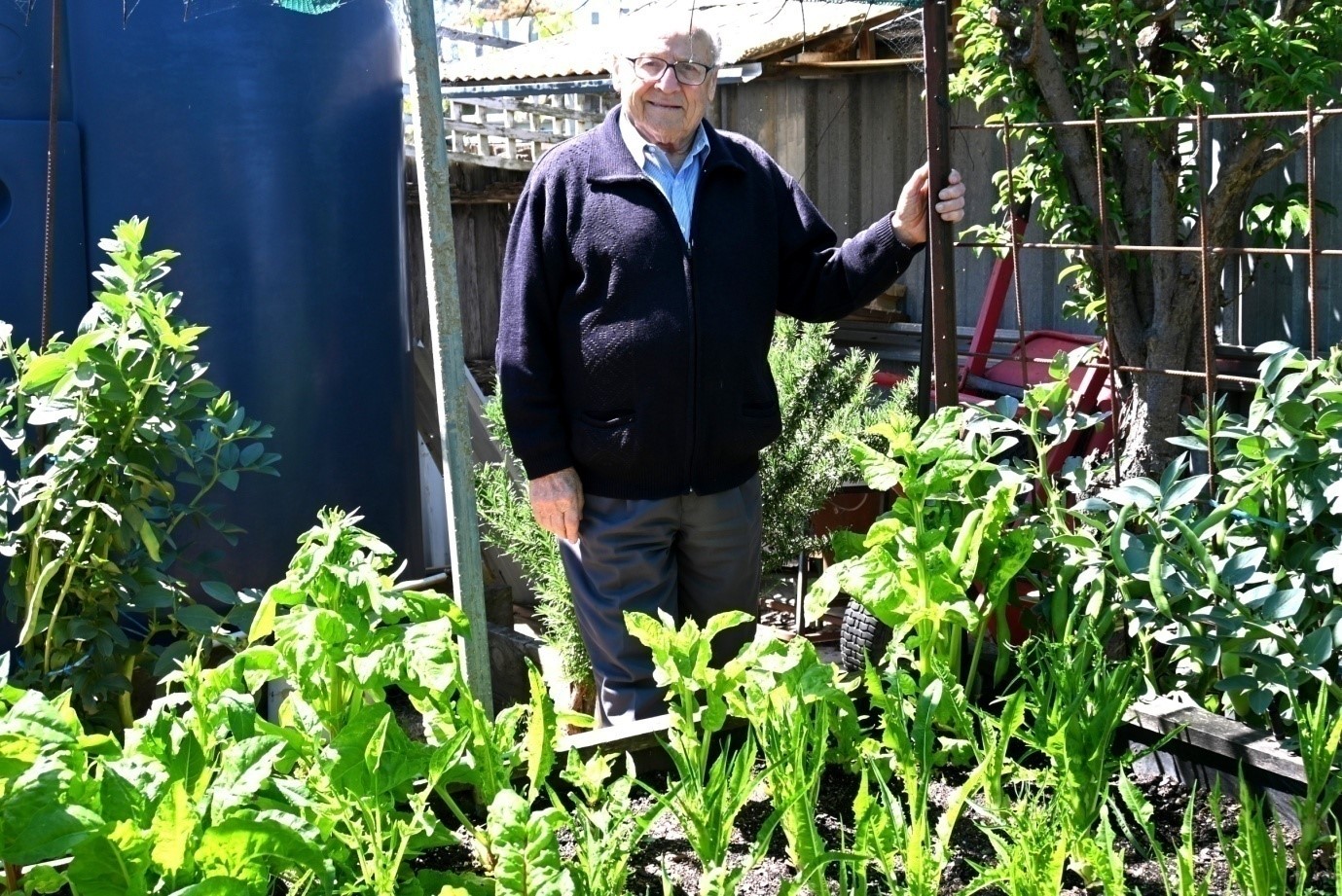 Alberto in his garden in Reservoir, where he grows all types of organic vegetables
Alberto in his garden in Reservoir, where he grows all types of organic vegetables
“Today, my company is in the hands of my sons Raffaele and Lucio,” Alberto says.
“I’m 87 years old, and after 65 years in Australia, my wife and I celebrated our 60th wedding anniversary quietly, by ourselves, due to the COVID-19 restrictions.
“We enjoyed our comfortable house and our garden; I like to spend my free time growing vegetables of every type and Elvira is always in her kitchen.
“I also managed to dedicate a lot of my time to the club during the lockdown, contacting and reassuring many members who live alone, and who we knew were having a bad time, suffering from anxiety and depression.
“Thank goodness the situation is changing for the better, and when the club reopens around February, following the provisions of the committee of the Casa D’Abruzzo Club, we can return to creating the jovial atmosphere and warmth that we enjoyed before the pandemic.”
Meanwhile, Raffaele and Lucio run the huge, well-established Verna Kitchen Components, which has been in the commercial heart of Campbellfield, north of Melbourne, for 40 years.
They create spacious, modern and functional kitchens, similar to the popular Swedish brand, IKEA, which has established itself on the global market with its “DIY” products.
“The difference is that everything we build is custom-made to fit the client’s kitchen,” Raffaele explains.
“We have requests, especially from young couples, who come to us every day and we try to fulfil their requirements.”
Alberto thinks back to 50 years ago, when he started building kitchens in Brunswick.
“When I bought this piece of land back then, there wasn’t another living soul around; now we’re right in the midst of everyone.
“What more could Elvira and I want from life?”

